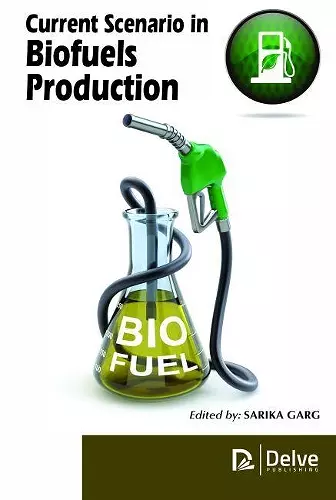Current Scenario in Biofuels Production
Format:Hardback
Publisher:Arcler Education Inc
Published:28th Feb '18
Should be back in stock very soon

Petroleum is a fossil fuel and has been the primary resource of energy. Products viz. gasoline and diesel have become an integral part of life all over the world. These resources play a crucial role in successful run of industries, particularly the transport sector. However, due to the increasing demands, these non-renewable resources are exhausting with each passing day which may lead to the mankind’s downfall. Additionally, the negative carbon balance (carbon is not replenished beneath the earth after burning of petrol and diesel) and environmental pollution associated with these resources are making environmentalists anxious about the use of natural petroleum products.
Determining the repercussions, the scientists are working hard in finding alternatives. The most significant alternative is biofuel. Biofuels are the renewable resources that can be derived from agricultural crops, forestry, fishery products, food industry, wastes, etc. Biofuels had been used since long time but were largely forgotten due to the cheaper prices of gasoline and diesel. The deterioration of environment and global warming issues obligated people to reconsider biofuels. The use of biofuels alleviates the greenhouse gases emission documenting it as environmental friendly. Moreover, biofuels usage could lead to a significant boost in economic development. Biofuels production is divided into two different categories- bioethanol and biodiesel. Considering the deleterious effects of petroleum products and potential benefits of biofuels on an environment, many countries have framed laws for blending specific percentage of ethanol in gasoline.
Three decades ago, food crops such as corn, wheat, sugar, starch, animal fats and vegetable oil were used directly as raw material for the production of biofuels. These biofuels were referred to as first generation biofuels. Over the years, the first generation biofuels were surrounded by controversies. It was considered that these biofuels release more carbon in their production and are expensive due to the derivation from food crops. To counterbalance the downsides of first generation biofuels, non-food crops such as food crop waste, organic waste, plants having no food value as raw materials were used for the production of biofuels. These biofuels were named as second generation biofuels. Thereafter, specially engineered algae such as cyanobacteria were utilized as raw material for the derivation of third generation biofuels. In recent years, the concept of fourth generation biofuels...
ISBN: 9781773611228
Dimensions: unknown
Weight: unknown
275 pages